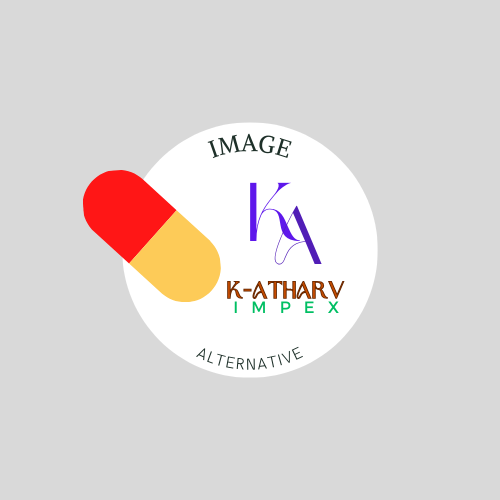- Your cart is empty
- Continue Shopping

Keytruda 100mg Injection
Uses of Keytruda 100mg Injection
- Advanced melanoma
- Non-small cell lung cancer
- Classical Hodgkin lymphoma
- Urothelial carcinoma
- Gastric cancer
- Head and neck squamous cell carcinoma
- Cervical cancer
- Primary mediastinal large B-cell lymphoma
Introduction to Keytruda 100mg Injection
Keytruda 100mg Injection is an immunotherapy medication containing the active constituent pembrolizumab. It is used to treat cancers in the skin, lungs, bladder, stomach, liver, gallbladder, cervix, kidney, colon, rectum, esophagus, breast, and uterus cancers. It is used to treat head and neck cancer and classical Hodgkin lymphoma (a type of blood cancer). Cancer is a disorder in which cells multiply in an uncontrolled and abnormal manner. It can lead to durable responses and improved survival in some patients with advanced cancer. It can improve overall survival in patients with several types of advanced cancer. However, not all patients respond to it, and some may experience side effects.
Keytruda 100mg Injection is not recommended for adolescents and children under 18 years of age, except for children with classical Hodgkin lymphoma aged three years and older. Use effective birth control during the treatment and for at least four months after the last dose. As with any cancer treatment, the decision to use it will depend on several factors, including the type and stage of cancer, the patient’s overall health, and other treatments the patient has received. Patients should discuss the potential risks and benefits with their healthcare provider.
Therapeutic Effects of Keytruda 100mg Injection
The therapeutic effect of Keytruda 100mg Injection is the activation of the immune system to identify and attack cancer cells in the body. It is a type of immunotherapy drug that blocks a protein called PD-1 present on immune cells, which allows the immune system to identify and attack cancer cells more effectively. By doing so, this drug can help slow or inhibit the spread and growth of cancer cells in the body.
Interaction of Keytruda 100mg Injection with other drugs
Inform your healthcare provider about all the medicines you take, including prescription medications, over-the-counter medications, nutritional or vitamin supplements, and herbal products. Certain medications may interact with Keytruda 100mg Injection and reduce effectiveness by causing undesirable side effects.
More Information about Keytruda 100mg Injection
- Keytruda 100mg Injection should be kept refrigerated between 2°C and 8°C (36°F to 46°F).
- This medication should be protected from light and kept in its original packaging until the time of use.
- Keep it out of reach from children and pets.
How to consume Keytruda 100mg Injection
Keytruda 100mg Injection is a medication that is administered by a healthcare professional, typically in a hospital or clinic setting. The medication is given as an intravenous (IV) infusion. The dosage and frequency will depend on the type and stage of the cancer, as well as the patient’s overall health and response to the medication. The medication is typically given every three to four weeks, and the number of treatment cycles varies with the type and staging of cancer and the patient’s response to the drug. During the infusion, the patient will be monitored by a healthcare professional for any potential side effects or reactions to the medication.
Safety Advices for Keytruda 100mg Injection
Pregnancy
Keytruda 100mg Injection is unsafe for a developing fetus, and it is not recommended for use during pregnancy.
Breast Feeding
If women is taking then it is a potential risk of harm to a nursing infant. Breastfeeding women should discuss the potential risks and benefits of the medication with their healthcare provider before starting treatment.
Lungs
Keytruda 100mg Injection has been associated with mild lung-related side effects, although these are relatively uncommon. You should consult the doctor if you have any lung diseases before starting the treatment.
Liver
Keytruda 100 mg Injection can affect liver function, and patients with pre-existing liver disease or abnormalities may be at increased risk of liver damage. Patients should tell their healthcare provider if they have a history of liver disease or abnormal liver function tests because it is unsafe to use this drug with pre-existing liver disease.
Alcohol
It is generally recommended that patients taking Keytruda 100mg Injections avoid or limit their alcohol intake, as alcohol increases the risk of liver damage and exacerbates any liver-related side effects.
Driving
Patients receiving Keytruda 100mg Injection should avoid driving or operating machinery if they experience side effects such as fatigue, dizziness, or blurred vision, impairing a patient’s ability to drive or operate machinery safely.
Side Effects of Keytruda 100mg Injection
Side effects are unwanted symptoms caused by medicines. Even though all drugs cause side effects, not everyone gets them.
Serious
- Pneumonitis (inflammation of the lungs).
- Hepatitis (inflammation of the liver).
- Colitis (inflammation of the colon).
- Hypothyroidism or hyperthyroidism.
- Adrenal insufficiency (decreased adrenal function).
- Type 1 diabetes.
Common
- Fatigue
- Nausea
- Loss of appetite
- Diarrhea or constipation
- Skin rash or itching
- Headache
- Muscle or joint pain
- Cough or shortness of breath
- Fever or chills
- Low blood cell counts

